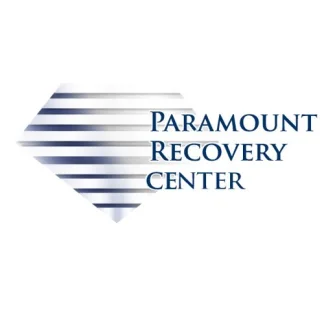Compass Recovery Center
Compass Recovery Center, in Prescott, Arizona, is a 12-Step drug and alcohol reh...
Paramount Recovery Center, in Prescott, Arizona, is an alcohol and drug rehab for adults. They provide inpatient, outpatient, supportive housing, and aftercare programs for young adults, seniors, and trauma survivors, the majority of whom are men.
Their residential treatment center features an inviting, home-like environment in the scenic Arizona desert. Programs include individual therapy, group therapy, peer support, and customized case management for alcoholism and gambling addiction. An assigned case manager provides customized treatment planning and support. Clients may engage in cognitive behavioral therapy (CBT) and dialectical behavioral therapy (DBT). Stabilization programs, including medical detox, are available. Clients are transitioned into structured sober living for 90 days, which includes peer support and guidance through a recovery-first perspective. Residential housing programs include finance management classes, recreational outdoor activities, and gym memberships.
Their aftercare programs enable a complete continuum of care, including step-down support for clients exiting residential care. Services may include continuing individual and group outpatient counseling. Support is also given for clients who pursue education programs, enter the workforce, or find independent housing.
Paramount Recovery Center is accredited by The Joint Commission.
Paramount Recovery Center accepts most major insurance providers, including Medicaid (AHCCCS), Blue Cross Blue Shield, United Health, and Aetna. The center is also in-network partners with Cigna, TRICARE, TRICARE West VA, CareFirst, Beacon, Humana, Magellan Health, Health Smart, MHN, Mercury Care, and Multiplan. Paramount Recovery Center may also work with other providers to offset treatment costs. Check with your provider for specific details and out-of-network coverage.
Contact us for more information: (866) 355-0344

Connect with Paramount Recovery Center by calling their admissions team directly.
(866) 355-0344 Website Get DirectionsThe Joint Commission, formerly known as JCAHO, is a nonprofit organization that accredits rehab organizations and programs. Founded in 1951, the Joint Commision's mission is to improve the quality of patient care and demonstrating the quality of patient care.
Joint Commission Accreditation: Yes
Cognitive Behavioral Therapy (CBT) is a therapy modality that focuses on the relationship between one's thoughts, feelings, and behaviors. It is used to establish and allow for healthy responses to thoughts and feelings (instead of unhealthy responses, like using drugs or alcohol). CBT has been proven effective for recovering addicts of all kinds, and is used to strengthen a patient's own self-awareness and ability to self-regulate. CBT allows individuals to monitor their own emotional state, become more adept at communicating with others, and manage stress without needing to engage in substance abuse.
Experiential therapy is a form of therapy in which clients are encouraged to surface and work through subconscious issues by engaging in real-time experiences. Experiential therapy departs from traditional talk therapy by involving the body, and having clients engage in activities, movements, and physical and emotional expression. This can involve role-play or using props (which can include other people). Experiential therapy can help people process trauma, memories, and emotion quickly, deeply, and in a lasting fashion, leading to substantial and impactful healing.
Group therapy is any therapeutic work that happens in a group (not one-on-one). There are a number of different group therapy modalities, including support groups, experiential therapy, psycho-education, and more. Group therapy involves treatment as well as processing interaction between group members.
In individual therapy, a patient meets one-on-one with a trained psychologist or counselor. Therapy is a pivotal part of effective substance abuse treatment, as it often covers root causes of addiction, including challenges faced by the patient in their social, family, and work/school life.
Experiential therapy is a form of therapy in which clients are encouraged to surface and work through subconscious issues by engaging in real-time experiences. Experiential therapy departs from traditional talk therapy by involving the body, and having clients engage in activities, movements, and physical and emotional expression. This can involve role-play or using props (which can include other people). Experiential therapy can help people process trauma, memories, and emotion quickly, deeply, and in a lasting fashion, leading to substantial and impactful healing.
Group therapy is any therapeutic work that happens in a group (not one-on-one). There are a number of different group therapy modalities, including support groups, experiential therapy, psycho-education, and more. Group therapy involves treatment as well as processing interaction between group members.
In individual therapy, a patient meets one-on-one with a trained psychologist or counselor. Therapy is a pivotal part of effective substance abuse treatment, as it often covers root causes of addiction, including challenges faced by the patient in their social, family, and work/school life.
Group therapy is any therapeutic work that happens in a group (not one-on-one). There are a number of different group therapy modalities, including support groups, experiential therapy, psycho-education, and more. Group therapy involves treatment as well as processing interaction between group members.
In individual therapy, a patient meets one-on-one with a trained psychologist or counselor. Therapy is a pivotal part of effective substance abuse treatment, as it often covers root causes of addiction, including challenges faced by the patient in their social, family, and work/school life.
In individual therapy, a patient meets one-on-one with a trained psychologist or counselor. Therapy is a pivotal part of effective substance abuse treatment, as it often covers root causes of addiction, including challenges faced by the patient in their social, family, and work/school life.
Compass Recovery Center, in Prescott, Arizona, is a 12-Step drug and alcohol reh...
Safe Harbor is a 12-Step-focused narcotics anonymous (NA) addiction recovery pro...
Prescott's Royal Life Centers at Arizona Detox offers alcohol and drug rehab ser...
Mile High Alano Club is a non-profit rehab located in Prescott, Arizona. Mile Hi...